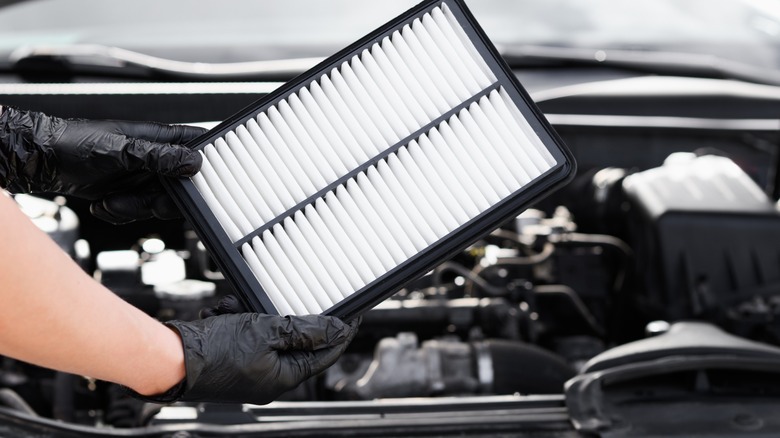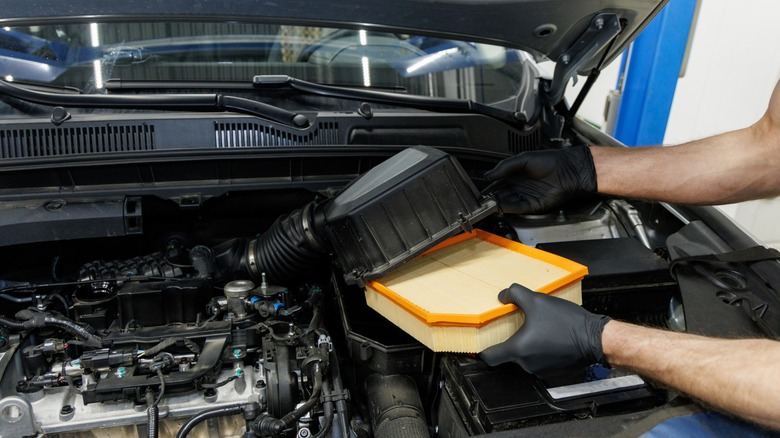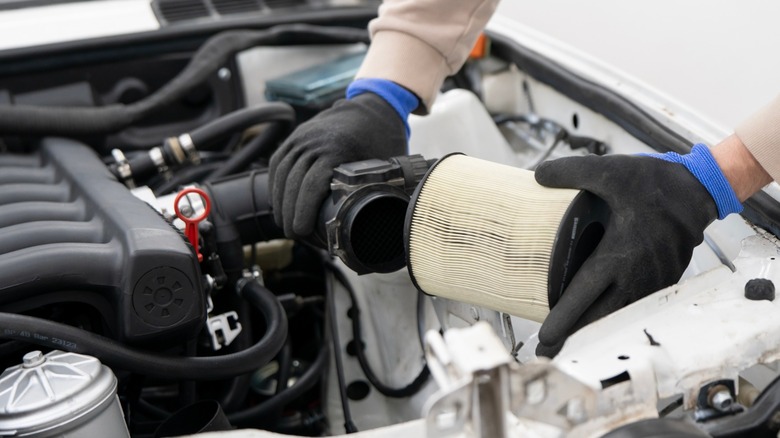What Happens If You Don't Change Your Engine's Air Filter?
Your car engine doesn't like to breathe through a pillow any more than you would. It needs oxygen just as badly as you need air during a sprint. But the thing is, your car's engine doesn't just inhale raw, dusty air from the road. That could be as harmful as it sounds, and that's where the engine air filter's job comes in. The engine air filter has a simple but enormous task. This is to catch all the gunk, grime, and microscopic junk before it enters the combustion chamber. Now, imagine never changing that filter.
You don't want to find out what happens if you never change your car's air filter. Such consequences could be dire for both your engine and your bank account. Not changing your air filter does not have an immediate impact on your engine health. But gradually, things go south. Think of it like wearing the same face mask for months. It won't kill your engine instantly, but it definitely won't do it any favors. With that said, here's what happens if you don't change your engine's air filter.
What happens when you let your air filter turn into a dust magnet
A car engine's air filter eventually gets clogged with dirt, bugs, and debris until airflow is practically strangled. You won't know this as your car can't speak. But it sure has symptoms you can easily identify. A clogged air filter is the automotive equivalent of chronic sinus congestion. You'll notice things start to change to a point that it's hard to ignore. One of these signs is reduced engine performance and power.
When your engine has a clogged filter, its oxygen intake gets restricted. It needs that air to burn fuel efficiently. The engine will compensate by injecting additional fuel to maintain performance. This creates an unbalanced air-fuel mix that means reduced power under the hood every time you hit the accelerator. As you might have guessed, a dirty air filter could be one of the reasons why your vehicle's mpg is going down. The result is more frequent trips to the pump and a growing hole in your wallet.
Also, your spark plugs will struggle to fire off as poor combustion leads to fouled spark plugs. Your car engine's air-fuel mixture is vital to setting off the spark plugs. As such, if it does not get enough clean external air, the spark plugs will struggle. This will domino into an inability for the engine to pump its pistons and provide power to the car.
When and why you should replace it
Changing an air filter is usually one of the easiest maintenance tasks. The average lifespan of a car engine's air filter is 12,000 to 15,000 miles or one year, whichever comes first. A lot of car manufacturers recommend replacing air filters every 15,000 to 30,000 miles. This is just a guideline, and should not be taken as the gospel. You should adjust to suit your peculiarities. For instance, if you live in a dusty area or regularly drive on rough terrain, you'll need to consider changing it more often. This extends to city drivers, stop-and-go commuters, and anyone living near construction zones.
Some other crucial air filter tips might come in handy. One is that you should check the air filter regularly, even if it hasn't reached the mileage or duration that makes it due for a change. Inspect it for dirt or other clogs. Also, avoid contaminating the air filter with oil.
This is often overlooked, as it's very easy to work with oil around an engine without paying attention to what it gets smudged on. Oil can drastically reduce the filter's ability to remove contaminants, as it can even attract grime and dust. Furthermore, only wash the filter if recommended by the owner's manual. If you wash an air filter that is not meant to be washed, you could be doing more harm than good. So, don't be caught lacking. Instead, follow these tips to reap the benefits of changing the engine air filter on your vehicle.


